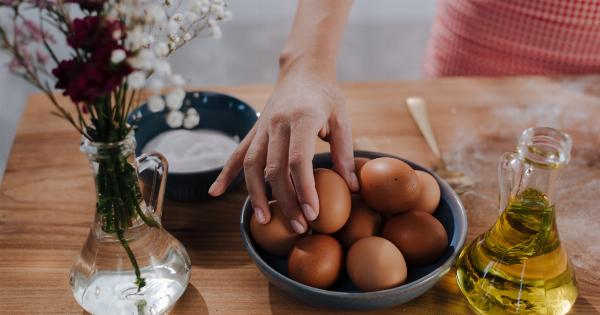Dandruff is a common scalp condition that causes flaking of dead skin cells. Although it’s not a serious condition, it can be irritating and embarrassing.
There are many over-the-counter shampoos and other products that claim to treat dandruff, but many people prefer to use natural remedies. In this article, we will discuss some natural treatments for dandruff.
1. Apple Cider Vinegar
Apple cider vinegar has both anti-inflammatory and antifungal properties, which makes it an effective natural treatment for dandruff. Mix equal parts of apple cider vinegar and water and apply the mixture to your scalp with a cotton ball.
Leave it on for 15 minutes to an hour, then rinse it out with water. Repeat this process once or twice a week. But be careful not to use undiluted apple cider vinegar as it can cause irritation.
2. Tea Tree Oil
Tea tree oil has antifungal and antibacterial properties that can help to get rid of dandruff. Mix a few drops of tea tree oil with your everyday shampoo and use it as usual.
Alternatively, dilute tea tree oil with a carrier oil like coconut or olive oil and massage it into your scalp. Leave it on for about 30 minutes before rinsing it out with water. Repeat once or twice a week.
3. Aloe Vera
Aloe vera has soothing and healing properties that can help to reduce inflammation and soothe an itchy scalp. Apply fresh aloe vera gel directly to your scalp and leave it on for 30 minutes before rinsing it out with water. Repeat twice a week.
You can also add a few drops of tea tree oil to aloe vera gel to enhance its effectiveness.
4. Baking Soda
Baking soda has exfoliating properties that can help to remove dead skin cells and reduce dandruff. Wet your hair and sprinkle a handful of baking soda onto your scalp. Massage it in for a few minutes, then rinse it out with water. Repeat once a week.
5. Coconut Oil
Coconut oil has antimicrobial and anti-inflammatory properties that can help to reduce dandruff. Massage warm coconut oil into your scalp and leave it on for at least an hour or overnight. Shampoo your hair as usual. Repeat once or twice a week.
6. Lemon Juice
Lemon juice has acidic properties that can help to balance the pH level of your scalp and reduce dandruff. Apply fresh lemon juice to your scalp and leave it on for 15 to 20 minutes before rinsing it out with water. Repeat once or twice a week.
Avoid using lemon juice if you have any cuts or wounds on your scalp.
7. Neem Oil
Neem oil has antifungal and antibacterial properties that can help to treat dandruff and other scalp conditions. Mix a few drops of neem oil with a carrier oil like coconut or olive oil and massage it into your scalp.
Leave it on for about 30 minutes before rinsing it out with water. Repeat once a week.
8. Fenugreek Seeds
Fenugreek seeds have antifungal and antibacterial properties that can help to get rid of dandruff. Soak two tablespoons of fenugreek seeds in water overnight. Grind the soaked seeds into a fine paste and apply it to your scalp.
Leave it on for 30 minutes before rinsing it out with water. Repeat once a week.
9. Olive Oil
Olive oil has moisturizing properties that can help to reduce dandruff and soothe an itchy scalp. Massage warm olive oil into your scalp and leave it on for at least an hour or overnight. Shampoo your hair as usual. Repeat once or twice a week.
10. Garlic
Garlic has antifungal and antibacterial properties that can help to treat dandruff and other scalp conditions. Crush a few cloves of garlic and mix them with olive oil.
Apply the mixture to your scalp and leave it on for 30 minutes before rinsing it out with water. Repeat once a week.





























